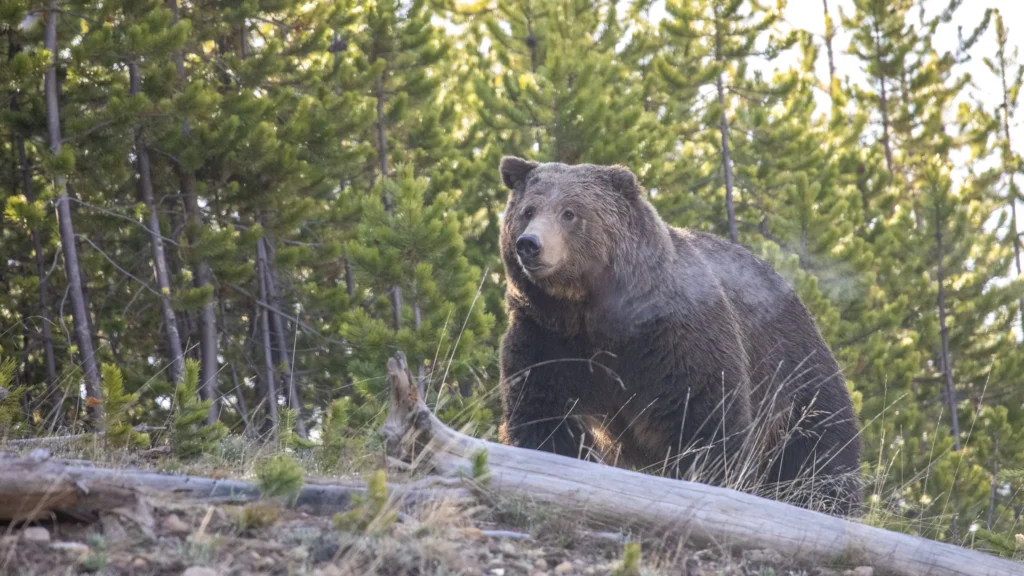A 29-year-old solo hiker suffered “significant but non-life-threatening” wounds in the attack, which occurred on the Turbid Lake Trail
A grizzly in Yellowstone (Photo: National Park Service)
Published September 17, 2025 03:52PM
A 29-year-old solo hiker is in the hospital after a bear attacked him in Yellowstone National Park.
The National Park Service said in a press release that the hiker was walking alone along the Turbid Lake Trail, northeast of Yellowstone Lake’s Mary Bay, on September 16 when he ran into the bear. The hiker attempted to use his bear spray to ward off the animal, but he still suffered “significant but non-life-threatening injuries to his chest and left arm.”
NPS medics met the hiker at the scene of the attack and walked out with him roughly 2.5 miles to the Pelican Valley Trailhead. From there, an ambulance transported him to the park’s Lake Medical Clinic, where a helicopter picked him up and flew him to a hospital.
While the hiker told park authorities that he believed the animal involved was a black bear, the NPS said that based on the location of the attack and the hiker’s description, they believed it might have been a grizzly instead. Bear managers will try to identify the species through DNA analysis. As the incident was a “defensive reaction by the bear during a surprise encounter,” the NPS does not plan to trap or kill the animal.
Turbid Lake Trail remains closed in the wake of the attack.
This week’s encounter is the first time in more than four years that a bear has injured a human inside Yellowstone National Park’s boundaries. In May 2021, a grizzly attacked a 39-year-old solo hiker on the park’s Beaver Ponds Trail, causing serious but non-fatal wounds to his legs; the hiker was able to walk out on his own. While several people have died in grizzly encounters in the greater Yellowstone ecosystem in recent years, the last fatal bear attack in the park proper occurred in 2015 when a bear killed and partially consumed 63-year-old Lake Medical Clinic worker Lance Crosby in the park’s backcountry.


